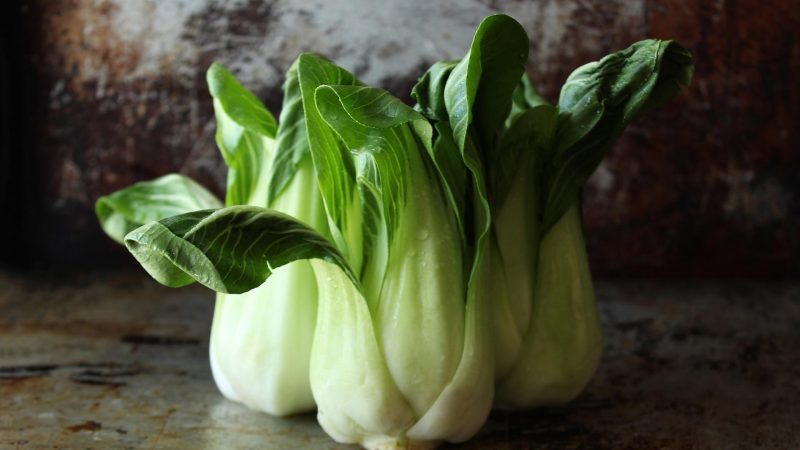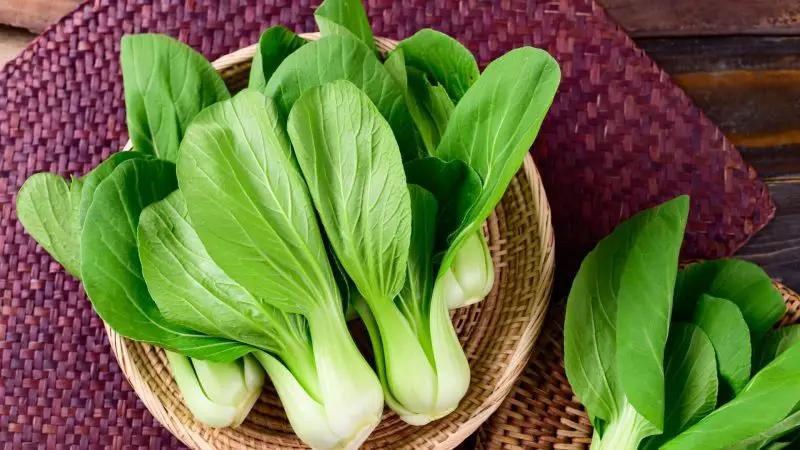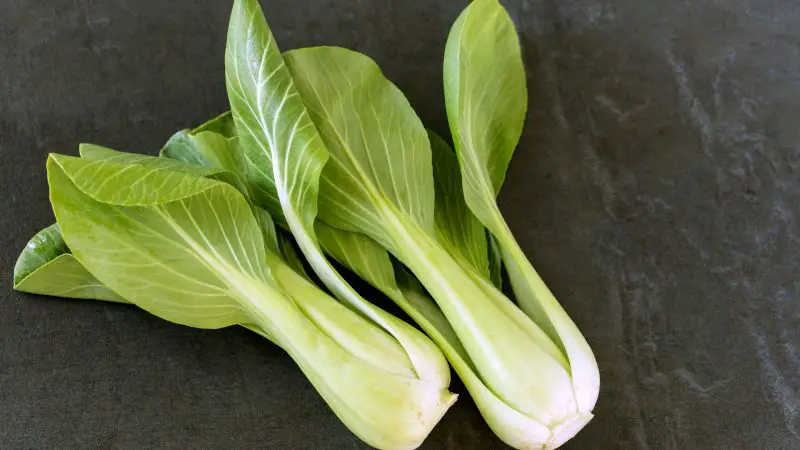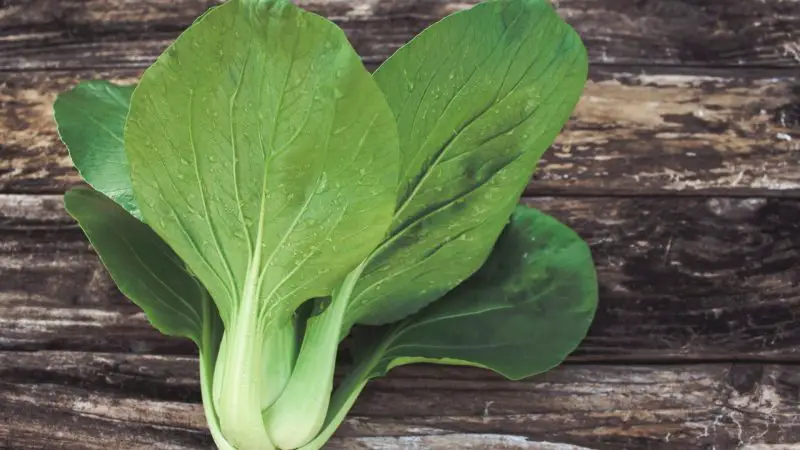Guinea pigs love everything organic and all that grows from the earth. They eat plenty of veggies, fruits, roots, herbs, and even flowers. Some of these can be toxic, so thorough research is required when it comes to guinea pig food.
For instance, today we’ll talk about a very unique vegetable called bok choy. This is the veggie that looks like a big green onion. But, is it ok for guinea pigs?
Can guinea pigs eat bok choy? Guinea pigs can eat bok choy but in moderation. The bok choy has calcium. But if the cavy eats too much of it, health problems can occur. Possible side effects of too much bok choy are bladder stones or kidney stones. It can also cause bloating, feces changes, and gasses in your guinea pigs.
As we mentioned, the bok choy veggie looks like some sort of green onion with big green cabbage leaves. All veggies in the cabbage family have a similar effect on the digestive system of guinea pigs – upset stomach and digestion-related issues.
But, this veggie also has some good benefits, like vitamins and minerals. Let’s have a detailed look.
Table of Content
Is Bok Choy Good for Guinea Pigs? | Health Benefits

The bok choy, like other cruciferous veggies, has good benefits when it comes to cancer prevention, protection of serious illnesses, or keeping the immunity in perfect health.
Bok choy has protection from cancer. The nutrients in this veggie prevent cancer in the prostate, lungs, and colon. This means it has antioxidants that fight free radicals. Free radicals damage health, cause premature aging, and can cause many fatal illnesses.
Also, the bok choy contains some folate; a vitamin that repairs DNA cells before they mutate, so that healthy offspring can be born. This is one benefit for pregnant cavies.
Best of all is that bok choy has vitamin C. This vitamin is the crucial, essential vitamin for cavies. The guinea pigs don’t make this vitamin naturally, and cannot store it properly. So if the guinea pig has a deficit of vitamin C, it is prone to many problems like scurvy.
With moderate amounts of bok choy, scurvy can be avoided. Otherwise, the cavy would have a rough coat, no appetite, fatigue, weakness, skipping, weight loss, stiff joints, and even discharge. Vitamin C also helps in making collagen. It is needed for the good formation of connective tissues, ligaments, tendons, and similar tissues.
Every mineral in this vegetable contributes to healthy blood pressure and healthy blood vessels. Since there is no cholesterol, you’ll know the cavy will have good cardiovascular health.
Nutrition Facts of Bok Choy

For 2 oz of bok choy, the nutritional chart goes like this:
- Total 9 calories
- 0.5 g protein – A small amount for low release of energy
- 53 g carbs – For the fast release of instant energy
- 7 g fiber – For good digestion
- 0 g cholesterol – This is good since cholesterol clogs up blood vessels and damages the heart.
- 7% calcium – These amount is bad for the cavy’s urinary system.
- 1% iron – For healthy blood
- 1 % magnesium – For healthy muscles, heart, healthy bones, prevention of diabetes
- 26 mg phosphorus – This binds with the calcium to create healthy bones and teeth. But in excess, it causes health problems.
- 176 mg potassium – For electrolyte balance and good metabolism
- 46 mg sodium
- 13 mg zinc – For good immunity, and healthy metabolism of proteins
- 35% vitamin C – Essential vitamin for the overall health of the cavy
- 17% vitamin – A great antioxidant for removing free radical damage, for healthy skin, kidneys, lungs, heart, and good immunity.
- 5% vitamin K – Faster healing of wounds
Is Bok Choy Bad for Guinea Pigs? | Possible Risks

Everything from the cabbage family of veggies has the same digestive effect as this Chinese cabbage bok choy. The cavy will be bloated, unable to pass gas, it will have flatulence and heavy digestion.
Don’t take this lightly. Sometimes too frequent digestive problems can be fatal for guinea pigs. So, anything cabbage-like must be fed in moderation and in small amounts.
Experts and researchers even proved that guinea pigs are prone to thyroid problems just as humans – hypothyroidism and hyperthyroidism.
The Chinese cabbage bok choy can sometimes interfere with the thyroid gland and the use of iodine. So, this vegetable is not the healthiest for those with thyroid issues, including guinea pigs.
Serving and Frequency of Bok Choy for Guinea Pigs
Give bok choy to your cavy 1-2 times per week. Also, a small piece or two, or a small handful, would be a good serving. Maybe at first, the taste could be unpleasant, so mix it with other veggies scheduled for that day or week.
If the cavy still doesn’t like bok choy, just don’t give it to them. Don’t force them to eat stuff they don’t like. If the cavies like it, you will see it immediately! They will devour the leaves like it’s the best treat ever.
Quick Facts on Bok Choy and Guinea Pigs

The following are some facts about bok choy and guinea pigs:
- Bok choy is good for cavies in moderation.
- Cavies either love bok choy or dislike the taste completely.
- If consumed in excess, this veggie causes flatulence, bloating, diarrhea, gasses, and similar problems.
- The bok choy is also called the Chinese cabbage.
- This veggie resembles a big green onion with cabbage-like leaves.
- One of the benefits is protection from cancer.
- Bok choy detoxifies and repairs DNA cells.
- It is rich in the essential vitamin C – crucial vitamin for cavies.
- Bok choy is not good if the cavy has thyroid problems.
We have also made a full list of foods that guinea pigs can and can’t eat (150+ Types of Foods). Be sure to also check our recommended products page for everything you will ever need to assure a happy life for your guinea pigs. Hope this information was helpful and you have found the answer you were looking for.
List of Sources
Vitamin C Requirements of the Guinea-Pig
Nutrient Requirements of Laboratory Animals: Fourth Revised Edition
The Effects of Diet on Anatomy, Physiology and Health in the Guinea Pig
